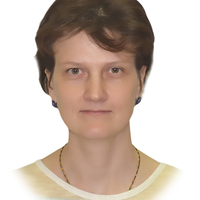
Vitaly Kopnov
Experienced coordinator of R&D and innovation projects in higher and vocational education (HE/VET) and lifelong learning. Well organised and conscientious in providing timely and efficient project management, consulting, coaching and grant writing.
Doctor of Engineering, Professor in Quality Management, former national Higher Education Reform Expert (HERE) of Erasmus+ programme (2014-2020), national and university coordinator of several Erasmus+ Projects: RUECVET, WBLinVET, FlexWBL, Pro-VET, MODEST, KA107 with EU countries as well as with Kazakhstan, Uzbekistan, Kyrgyzstan, Tajikistan, Armenia and Serbia. Experienced in implementing ETF's projects on VNIFL, Creating New Learning initiative, DARYA.
Areas of expertise: project and innovation management, quality management, entrepreneurship, work-based learning, LLL, student-centred and competence-based approaches, qualification framework, transdisciplinary research and learning, VNIFL, and social media networking. Designer and developer of various continuous professional development courses for HE/VET teachers and trainers, business administrator, managers and entrepreneurs.
Member of IVETA, Skillman, Editorial board of the Education and Science Journal, Editorial Board of 'Hyusisapayl' Scientific Journal. Ambassador and Innovator of the ETF Community of Innovative Educators.
Phone: +996552684685
Address: 34/1 Isakeeva, Bishkek, Kyrgyzstan
Doctor of Engineering, Professor in Quality Management, former national Higher Education Reform Expert (HERE) of Erasmus+ programme (2014-2020), national and university coordinator of several Erasmus+ Projects: RUECVET, WBLinVET, FlexWBL, Pro-VET, MODEST, KA107 with EU countries as well as with Kazakhstan, Uzbekistan, Kyrgyzstan, Tajikistan, Armenia and Serbia. Experienced in implementing ETF's projects on VNIFL, Creating New Learning initiative, DARYA.
Areas of expertise: project and innovation management, quality management, entrepreneurship, work-based learning, LLL, student-centred and competence-based approaches, qualification framework, transdisciplinary research and learning, VNIFL, and social media networking. Designer and developer of various continuous professional development courses for HE/VET teachers and trainers, business administrator, managers and entrepreneurs.
Member of IVETA, Skillman, Editorial board of the Education and Science Journal, Editorial Board of 'Hyusisapayl' Scientific Journal. Ambassador and Innovator of the ETF Community of Innovative Educators.
Phone: +996552684685
Address: 34/1 Isakeeva, Bishkek, Kyrgyzstan
less
Related Authors
Oleg Latyshev
South Kazakhstan State Pedagogical Institute
Margarita Kozhevnikova
Herzen State Pedagogical University of Russia, St.Petersburg.
Владимир Герасимов
Russian Academy of Sciences, Institute of Social Sciences and Humanities Information
Anuar Galiev
Kazakh national university named after al-Farabi
InterestsView All (6)








Uploads
Papers by Vitaly Kopnov
The aims of the research are the following: 1) to compare the educational needs of Russian and Serbian VET teachers in the development of their digital pedagogical competencies; 2) to identify the theoretical and practical base for VET teachers’ digitally competent development programme design in the context of online learning according to the best European practices in the field of VET.
Methodology and research methods. The development of the model was based on learning theories, didactics and practical approaches to soft skills development in online learning environments. The research has been conducted by the means of document analysis, theoretical analysis and synthesis methods, comparative method, modelling method and expert estimation method.
Results and scientific novelty. Key aspects of VET teacher training systems in Russia and Serbia are compared and needs in development of digital pedagogical skills of Russian and Serbian VET teachers are identified. A developed model of VET teachers’ digitally competent development programme design in the context of online learning according to best European practices in this fields is represented by two components: structural and functional. The structural component of VET teachers’ digitally competent development model contains: learning theories and didactics, adult learning theories, soft skills development approaches in online learning, learning outcomes development approaches. The functional component of the model contains: national and European educational policy, strategies in the field of digitalisation of education and the development of digital competencies of teachers, European Union policies related to online learning; pedagogical, psychological and didactical design parameters of the content of advanced training programmes in the context of e-learning.
Practical significance. The demonstrated model is being tested in the framework of the implementation of the international Pro-VET project supported by ERASMUS+. Methodological approaches, procedure and tools of VET teachers’ digitally competent development are being developed and tested. The application of digitally competent development programmes ensures the transparency of training and allows for the correlation of national and international training programmes as well as the development of academic and professional mobility of VET teachers. The process of designing such educational training programmes in online environment for VET teachers has begun at some universities in Russia and Serbia (participants of the project). The developed online training programmes can be used as a basis to design more quality online courses beyond the Pro-VET project in the sphere of professional development for VET teachers.
The methodology is based on the functional analysis of an occupational sector and the functions performed within it in such a manner that the following identification of the correspondent units of learning outcomes for the relevant qualification can be fulfilled. The research has been conducted by means of the content-analysis, modelling and expert estimation method.
Comparative analysis of approaches to the design of occupations and qualifications in both national and European environments is presented in the article. The functional analysis is used for allocation of work functions and creation of units of learning outcomes related to a particular qualification. The procedure of applying functional analysis to an occupation as well as the technology of consequent construction of the functional map for the correspondent qualification taking into account the relevant educational and occupational standards and sectoral preferences has been elaborated. The result of the study is adaptation of methodology of functional analysis and verification of the developed procedure when constructing a functional map of the chosen qualification. The procedures are illustrated on the qualification of a lawyer achieved in the VET study programme “Legislation and Social Protection”, equivalent to level 5 of the European Qualifications Framework (EQF). Successful experiments with occupations of welders, electricians, web designers, hospitality managers and others related to the qualifications of level 4 and 5 of EQF have been also completed in RUECVET project, although are not described in the article due to the restricted volume.
The derived procedures are useful for development of a set of detailed learning outcomes from functional mapping by allocating knowledge and skills and using the concept of unit of learning outcomes for compilation of a qualification in accordance with the relevant educational and occupational standards and employers’ understanding how the real work should be performed. The procedures are useful also for identifying units of learning outcomes to build an adequate VET study programme in ECVET context of Russian educational system.
The methods of system and comparative analysis, synthesis and generalization are used.
This review article summarizes briefly: the social attributes of students who prefer to complete WBL programs; relevant requirements of employers to the quality of training; a new university policy on the management of training, and its contribution to the creation of innovative educational environment at workplaces; overcoming challenges when establishing long-term partnerships between universities and enterprises; organizational and theoretical foundations of the WBL study programs. A number of critical remarks on WBL study programs are being analyzed. Authors make a point about the importance of a transdisciplinary shell framework to facilitate learning driven by the interests of the learner(s). When carrying out the review, authors refer also to the experience of other English-speaking countries (Australia and the USA), which also successfully develop the concept under consideration.
For the first time an analytical review of basic elements, organizational and theoretical foundations of work-based learning (WBL) in the higher education, which is widespread in English-speaking countries over the last 25 years, is presented in the Russian scientific literature in education.
The materials provided in the article can be useful to managers and teachers of higher education institutions, methodologists of higher and vocational education providers and departments of professional development of High-Tech enterprises.
Methods. The methods of system and comparative analysis, synthesis and generalization are used.
Results. The background and development of WBL is given; the importance and value of this form of education in the modern, rapidly changing society is shown. The main characteristics are selected and basic aspects of WBL programs profitable different from traditional university programs are designated: relevance to real production processes; student centricity; flexibility of content which is built proceeding from interests of an employer and a student; high extent of integration of various disciplines and fields of knowledge; recognition of the prior certified and independent training; optimization of time expenditure; possibility of the choice of the place of training, its sequence, schedule of control actions, and other advantages. Options of a program implementation of WBL, complexity of their implementation and methods of their overcoming are described. A few critical remarks concerning WBL programs are also presented.
Scientific novelty. For the first time the analytical review of WBL practice at a higher education level, which is widespread in English-speaking countries over the last 25 years, is presented in the Russian scientific literature in education.
Practical significance. The materials provided in the article can be useful to heads and teachers of institutions of higher education; methodologists of structures of vocational preparation and advanced training of personnel of high technology productions; the employers heading large-scale industries and interested in upgrading of employees’ educational level.
Methods. Methods of system and comparative analysis, modeling, synthesis and generalization are used. Specification of the model of workers training offered by authors is carried out on the basis of deep interviews to experts – the representatives of the large enterprises who are carrying out training of the personnel.
Results. Social and pedagogical contradictions are revealed, on the one hand, in the growing need for highly professional personnel for hi-tech productions, and, on the other hand, in insufficiently effective countermeasures of the system of vocational education and training on closing actual requirements of productions. The discrepancies reducing the quality of preparation of skilled workers are revealed by comparative analysis of competences based on an ideal competence model of the trainer and teacher of VET with the competences presented in educational both professional standards and the discussed projects. Characteristics of the existing pedagogical process in the hi-tech production environment are described. For the purpose of quality improvement of the pedagogical process, the network format of interactions of the enterprise, educational and the business organizations is offered.
Scientific novelty. The concept «pedagogical process» for the purpose of making it more instrumental is specified; it joins a technological process and the design of its ideal model for the hi-tech production environment. The unique network project including design and development of innovative manuals and teaching materials for the welding equipment of Fronius International GmbH.
Practical significance. The research results can be useful to the management of staff development and career advancement of hi-tech productions, and VET providers when the quality of training of skilled workers, trainers and teachers of VET is to be improved.
Methods. Methods of the system and comparative analysis, synthesis, generalisation, analogy are used in the presented paper.
Results. The key role of corporate culture of high school in formation of actual competences providing future graduates success is proved on the basis of materials of the Russian and foreign researches. The social and pedagogical contradictions which are that the declared accounting of features of corporate culture in pedagogical process isn't provided with mechanisms of design of the competences provided with signs of corporate identity are revealed. Missions of modern leading high schools are analysed for the purpose of definition of these signs. The necessity of changing the model of corporate culture at the stage preceding the design of learning outcomes is justified.
Scientific novelty. The concept of application of the model of HEI (Higher Education Institutions) corporate culture as a key reference point for forming competences provided with signs of corporate identity is offered. The concept considers features of transition of the Russian HEI to work in conditions fulfilling requirements of the Bologna agreement. The concept is caused also by an indicator «Success of university graduates, achievements of HEI in the process of selection of elite at national and international levels» by criterion «brand» in the model of National Universities Ranking. The new concept «adornation» (derived from a verb “to adorn”) in relation to process of forming the competences provided with signs of corporate identity is introduced. According to the offered concept, semantic filling of a mission and system of values allows adorning competences taking into account requirements of the social role of a graduate as a mission performer of HEI and helps the graduate in detail and in the best way to embody corporate valuable ideals in activity.
Practical significance. The research results can be useful to teachers and managers of HEIs while monitoring systems of success of graduates.
The article is devoted to the analysis and description of approaches to using units of learning outcomes in the design of study programmes on the basis of ECVET. The emphasis is placed on compliance of units of learning outcomes and qualifications for which they are developed and what benefits can be received from the use of this concept when VET study programmes are developed.
Methods. The comprehensive assessment of the scope of secondary vocational education and training (VET) and comparative analysis of professional skills contests in Russian regions with the aim to identify existing organizational and competitive challenges are provided.
Results. On the basis of these studies, the positive effect of training of in-service trainers on the use of professional skills contests is outlined.
Scientific novelty. Integration of in-service training at all levels of training – from students to experienced workers into receivership motion would allow us to create a creative learning environment, promoting active self-development group of training of vocational trainers in general.
Practical significance. The research results can be useful to teachers of secondary and postsecondary VET institutions in the further study of the organizational and creative foundations of training of in-service trainers.
The aims of the research are the following: 1) to compare the educational needs of Russian and Serbian VET teachers in the development of their digital pedagogical competencies; 2) to identify the theoretical and practical base for VET teachers’ digitally competent development programme design in the context of online learning according to the best European practices in the field of VET.
Methodology and research methods. The development of the model was based on learning theories, didactics and practical approaches to soft skills development in online learning environments. The research has been conducted by the means of document analysis, theoretical analysis and synthesis methods, comparative method, modelling method and expert estimation method.
Results and scientific novelty. Key aspects of VET teacher training systems in Russia and Serbia are compared and needs in development of digital pedagogical skills of Russian and Serbian VET teachers are identified. A developed model of VET teachers’ digitally competent development programme design in the context of online learning according to best European practices in this fields is represented by two components: structural and functional. The structural component of VET teachers’ digitally competent development model contains: learning theories and didactics, adult learning theories, soft skills development approaches in online learning, learning outcomes development approaches. The functional component of the model contains: national and European educational policy, strategies in the field of digitalisation of education and the development of digital competencies of teachers, European Union policies related to online learning; pedagogical, psychological and didactical design parameters of the content of advanced training programmes in the context of e-learning.
Practical significance. The demonstrated model is being tested in the framework of the implementation of the international Pro-VET project supported by ERASMUS+. Methodological approaches, procedure and tools of VET teachers’ digitally competent development are being developed and tested. The application of digitally competent development programmes ensures the transparency of training and allows for the correlation of national and international training programmes as well as the development of academic and professional mobility of VET teachers. The process of designing such educational training programmes in online environment for VET teachers has begun at some universities in Russia and Serbia (participants of the project). The developed online training programmes can be used as a basis to design more quality online courses beyond the Pro-VET project in the sphere of professional development for VET teachers.
The methodology is based on the functional analysis of an occupational sector and the functions performed within it in such a manner that the following identification of the correspondent units of learning outcomes for the relevant qualification can be fulfilled. The research has been conducted by means of the content-analysis, modelling and expert estimation method.
Comparative analysis of approaches to the design of occupations and qualifications in both national and European environments is presented in the article. The functional analysis is used for allocation of work functions and creation of units of learning outcomes related to a particular qualification. The procedure of applying functional analysis to an occupation as well as the technology of consequent construction of the functional map for the correspondent qualification taking into account the relevant educational and occupational standards and sectoral preferences has been elaborated. The result of the study is adaptation of methodology of functional analysis and verification of the developed procedure when constructing a functional map of the chosen qualification. The procedures are illustrated on the qualification of a lawyer achieved in the VET study programme “Legislation and Social Protection”, equivalent to level 5 of the European Qualifications Framework (EQF). Successful experiments with occupations of welders, electricians, web designers, hospitality managers and others related to the qualifications of level 4 and 5 of EQF have been also completed in RUECVET project, although are not described in the article due to the restricted volume.
The derived procedures are useful for development of a set of detailed learning outcomes from functional mapping by allocating knowledge and skills and using the concept of unit of learning outcomes for compilation of a qualification in accordance with the relevant educational and occupational standards and employers’ understanding how the real work should be performed. The procedures are useful also for identifying units of learning outcomes to build an adequate VET study programme in ECVET context of Russian educational system.
The methods of system and comparative analysis, synthesis and generalization are used.
This review article summarizes briefly: the social attributes of students who prefer to complete WBL programs; relevant requirements of employers to the quality of training; a new university policy on the management of training, and its contribution to the creation of innovative educational environment at workplaces; overcoming challenges when establishing long-term partnerships between universities and enterprises; organizational and theoretical foundations of the WBL study programs. A number of critical remarks on WBL study programs are being analyzed. Authors make a point about the importance of a transdisciplinary shell framework to facilitate learning driven by the interests of the learner(s). When carrying out the review, authors refer also to the experience of other English-speaking countries (Australia and the USA), which also successfully develop the concept under consideration.
For the first time an analytical review of basic elements, organizational and theoretical foundations of work-based learning (WBL) in the higher education, which is widespread in English-speaking countries over the last 25 years, is presented in the Russian scientific literature in education.
The materials provided in the article can be useful to managers and teachers of higher education institutions, methodologists of higher and vocational education providers and departments of professional development of High-Tech enterprises.
Methods. The methods of system and comparative analysis, synthesis and generalization are used.
Results. The background and development of WBL is given; the importance and value of this form of education in the modern, rapidly changing society is shown. The main characteristics are selected and basic aspects of WBL programs profitable different from traditional university programs are designated: relevance to real production processes; student centricity; flexibility of content which is built proceeding from interests of an employer and a student; high extent of integration of various disciplines and fields of knowledge; recognition of the prior certified and independent training; optimization of time expenditure; possibility of the choice of the place of training, its sequence, schedule of control actions, and other advantages. Options of a program implementation of WBL, complexity of their implementation and methods of their overcoming are described. A few critical remarks concerning WBL programs are also presented.
Scientific novelty. For the first time the analytical review of WBL practice at a higher education level, which is widespread in English-speaking countries over the last 25 years, is presented in the Russian scientific literature in education.
Practical significance. The materials provided in the article can be useful to heads and teachers of institutions of higher education; methodologists of structures of vocational preparation and advanced training of personnel of high technology productions; the employers heading large-scale industries and interested in upgrading of employees’ educational level.
Methods. Methods of system and comparative analysis, modeling, synthesis and generalization are used. Specification of the model of workers training offered by authors is carried out on the basis of deep interviews to experts – the representatives of the large enterprises who are carrying out training of the personnel.
Results. Social and pedagogical contradictions are revealed, on the one hand, in the growing need for highly professional personnel for hi-tech productions, and, on the other hand, in insufficiently effective countermeasures of the system of vocational education and training on closing actual requirements of productions. The discrepancies reducing the quality of preparation of skilled workers are revealed by comparative analysis of competences based on an ideal competence model of the trainer and teacher of VET with the competences presented in educational both professional standards and the discussed projects. Characteristics of the existing pedagogical process in the hi-tech production environment are described. For the purpose of quality improvement of the pedagogical process, the network format of interactions of the enterprise, educational and the business organizations is offered.
Scientific novelty. The concept «pedagogical process» for the purpose of making it more instrumental is specified; it joins a technological process and the design of its ideal model for the hi-tech production environment. The unique network project including design and development of innovative manuals and teaching materials for the welding equipment of Fronius International GmbH.
Practical significance. The research results can be useful to the management of staff development and career advancement of hi-tech productions, and VET providers when the quality of training of skilled workers, trainers and teachers of VET is to be improved.
Methods. Methods of the system and comparative analysis, synthesis, generalisation, analogy are used in the presented paper.
Results. The key role of corporate culture of high school in formation of actual competences providing future graduates success is proved on the basis of materials of the Russian and foreign researches. The social and pedagogical contradictions which are that the declared accounting of features of corporate culture in pedagogical process isn't provided with mechanisms of design of the competences provided with signs of corporate identity are revealed. Missions of modern leading high schools are analysed for the purpose of definition of these signs. The necessity of changing the model of corporate culture at the stage preceding the design of learning outcomes is justified.
Scientific novelty. The concept of application of the model of HEI (Higher Education Institutions) corporate culture as a key reference point for forming competences provided with signs of corporate identity is offered. The concept considers features of transition of the Russian HEI to work in conditions fulfilling requirements of the Bologna agreement. The concept is caused also by an indicator «Success of university graduates, achievements of HEI in the process of selection of elite at national and international levels» by criterion «brand» in the model of National Universities Ranking. The new concept «adornation» (derived from a verb “to adorn”) in relation to process of forming the competences provided with signs of corporate identity is introduced. According to the offered concept, semantic filling of a mission and system of values allows adorning competences taking into account requirements of the social role of a graduate as a mission performer of HEI and helps the graduate in detail and in the best way to embody corporate valuable ideals in activity.
Practical significance. The research results can be useful to teachers and managers of HEIs while monitoring systems of success of graduates.
The article is devoted to the analysis and description of approaches to using units of learning outcomes in the design of study programmes on the basis of ECVET. The emphasis is placed on compliance of units of learning outcomes and qualifications for which they are developed and what benefits can be received from the use of this concept when VET study programmes are developed.
Methods. The comprehensive assessment of the scope of secondary vocational education and training (VET) and comparative analysis of professional skills contests in Russian regions with the aim to identify existing organizational and competitive challenges are provided.
Results. On the basis of these studies, the positive effect of training of in-service trainers on the use of professional skills contests is outlined.
Scientific novelty. Integration of in-service training at all levels of training – from students to experienced workers into receivership motion would allow us to create a creative learning environment, promoting active self-development group of training of vocational trainers in general.
Practical significance. The research results can be useful to teachers of secondary and postsecondary VET institutions in the further study of the organizational and creative foundations of training of in-service trainers.
Описываются модели оптимального управления процессами деградации элементов механических систем, используемые для решения ряда задач управления надежностью. Рассматриваются методы управления наблюдаемыми и ненаблюдаемыми процессами деградации систем одно- и многократного действия. Предложены унифицированные алгоритмы моделирования процессов деградации. Адресуется научным работникам, преподавателям и специалистам в области управления надежностью, а также студентам, изучающим теорию управления надежностью.
Монография адресована педагогам, научным работникам, аспирантам и студентам сферы профессионально-педагогического образования.
условиями ее распространения на глобальном рынке. Определены организационные и ментальные противоречия процесса внедрения рассматриваемой технологии в постсоциалистической России.
Монография будет полезна специалистам в области менеджмента качества, а также студентам старших курсов, обучающимся по направлению «Управление качеством».
Темы лекций посвящены преодолению технических барьеров при продвижении отечественных товаров на рынки стран ЕС посредством достижения соответствия требованиям Директив Нового и Глобального подходов. Рекомендованы для студентов специальностей 060600 “Мировая экономика”, 220501.65 "Управление качеством" и 200503.65 "Стандартизация и сертификация". Могут использоваться по широкому кругу технических и экономических направлений вузов. Лекции чрезвычайно полезны высшему руководству организаций, поставившему
себе цели поставок своей продукции на рынок ЕС, а также руководителям, которые управляют маркетингом и продажами, производственными процессами, дизайном, испытаниями и контролем производимых товаров.
Монография будет полезна специалистам в области менеджмента качества и управления закупками, а также студентам, обучающимся по направлению «Управление качеством».
The report describes how the teacher's roles change, transform, and expand significantly. A number of requirements are also put forward for the skills of the teacher, for the digital literacy and ability to create and apply content through digital technologies, including the skills of computer programming, search, information exchange, communication. In particular, the teacher must be willing to work in an ever-changing digital learning environment.
In Russia, government interest in teachers’ digital training is supported by several priority national projects. However, they place more emphasis on schoolteachers and university academics, and rarely mentions the digital competence of VET teachers. This is confirmed also by the peculiarities of the implementation of the educational process in the current situation. On the basis of European and Russian data obtained in the Pro-VET project, the RSVPU defined an algorithm for the digital transformation of the process of vocational pedagogical education and training, and also carried out a research, in which the readiness of teachers to use digital technologies in the educational process was analyzed.
11-12 октября 2018 г., Москва, ВШЭ.
В докладе освещались вопросы вовлечения российских университетов в разработку программ в формате WBL. Акцент был сделан на реальных потребностях студентов, которые хотя учиться и работать одновременно, развивая рабочее место и фирму работодателя. Главная роль в таких программах отводится тьютору, который начинает работу со студентом с заключения индивидуального контракта на обучение, содержащего специально составленный под каждого конкретного студента учебный план. Большой акцент в таком формате обучении делается на валидацию неформального и спонтанного обучения, превращение преподавателя в консультанта по реальным проблемам, возникающим на рабочем месте студента. Для успешной реализации таких программ необходима развитая онлайн-платформа с базовыми курсами, доступными онлайн.
- Different understanding of educational quality by stakeholders
- Russian State Programmes of Education Development
- Levels and flow of Russian Quality Assurance Framework for VET and HE
- Role and relations to ESG ENQA
- Partnership of State and Public Accreditation
- EQA and IQA in Professional Accreditation
- Six challenges facing Russian Quality Assurance Framework in Education
В сетевых структурах особую значимость имеет качество деятельности в рамках процессов переданных другим организациям. Качество деятельности в рамках переданных про-цессов во многом зависит от качества поставленных для этих процессов целей. Для постановки целей предлагается использовать объектно-ориентированный подход. Приведен соответствующий пример, где в качестве объекта выбрана цель образовательной организации.
of the citizens allowing to adapt flexibly to changes – their social and occupational mobility. It is necessary to base on the values of the educational organization to provide a goal-setting in this organization: from strategic aims to the objectives of a certain discipline or educational programs.
ванного мышления при решении задачи формирования у студентов социально-профессиональной мобильности. Указывается, что профессиональное образование играет важнейшую роль в формировании у граждан компетенций, позволяющих гибко приспосабливаться к изменениям, – их социально-профессиональной мобильности. Делается вывод, что на основе ценностей образовательной
организации необходимо обеспечивать ее целеполагание – от стратегических целей до целей конкретных дисциплин и образовательных программ.
Что осталось в ECVET, почему исчезли кредитные единицы, функциональный анализ квалификаций, построение результатов и блоков результатов обучения, критерии оценивания.
Социальность предпринимательства.
Философия социального предпринимательства.
Компетенции и примеры.
Нужна бизнес-модель.
Распознавание возможностей.
для студентов очной и заочной форм обучения
направления 657000 «Управление качеством»,
специальности 220501 «Управление качеством»
по дисциплине «Основы обеспечения качества»
ров, зависит в первую очередь от качества ее продукции и соизмеримости цены этой продукции с
предлагаемым качеством, т. е. от того, в какой степени продукция предприятия удовлетворяет за-
просам потребителя. Качество продукции при покупке является предполагаемым и соизмеряется
современным потребителем с известной ценой этой продукции. Этот процесс сравнения цены и
качества весьма непрост для формализации, тем не менее мы часто осуществляем его в обычных
магазинах просто на основе интуиции и некоторых представлениях о рынке. Более грамотный и
формализованный подход реализуется между организациями в процессе заключения контрактов
на поставки, когда в различные документы включаются требования к продукции с явным указа-
нием требований к качеству, например, ссылки на ГОСТы, требования к поставке, монтажу, сер-
висному обслуживанию и т. д. Современный рынок создал новый механизм по обеспечению каче-
ства поставок продукции, реализуемый в виде требования на наличие системы менеджмента ка-
чества организации, что дает заказчику дополнительную уверенность в том, что то, что заявлено в
контракте, будет действительно выполнено.